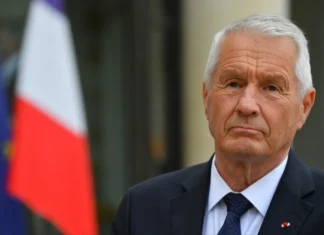The Central Bank of Ukraine recently announced a remarkable 6.4% increase in international reserves for the month of October. This surge has pushed the reserves to an unprecedented level of $49.5 billion, marking the highest figure in the nation’s history. The rise in reserves is primarily attributed to substantial capital inflows from international partners, which notably surpassed the currency sales by the bank as well as the external debt repayments by the government.
In October alone, the Ukrainian government received a significant sum of $6.4 billion in foreign currency. Among these inflows, a notable $4.7 billion came from the European Union through a G7 initiative, which underscores the collaborative efforts of Western allies to support Ukraine during these challenging times. Additionally, the World Bank contributed $1.1 billion, while $507.7 million was secured through government bond issues, and the Council of Europe Development Bank provided an additional $117 million.
Alongside these inflows, it’s important to note that the Central Bank allocated $612 million for the repayment of foreign currency debts owed by the government. This strategic management of finances reflects the Ukrainian government’s commitment to maintaining its fiscal responsibilities while navigating the economic challenges brought on by the ongoing conflict.
These record-high reserves serve as a testament to the significant impact of Western assistance in bolstering Ukraine’s macroeconomic stability amidst the ongoing Russian invasion. The financial support from international partners plays a pivotal role in ensuring that Ukraine can meet its financial obligations, keep its economy afloat, and provide necessary resources for its citizens during a time of crisis.
The Central Bank’s announcement is significant not just for the numbers it represents, but for the broader implications it has for Ukraine’s economy. A robust reserve of foreign currency enhances the country’s resilience against external shocks, instills confidence among investors, and can help stabilize the national currency. Furthermore, it provides a buffer that can be vital for funding essential government services and infrastructure projects, particularly in a context where the state is heavily reliant on external sources of support.
This development also reflects ongoing cooperation and commitment from global financial institutions, which have recognized the importance of a stable and resilient Ukraine. Partners like the European Union and the World Bank are not only offering financial aid but are also engaging in initiatives aimed at economic recovery and rebuilding efforts post-conflict.
In summary, the increase in Ukraine’s international reserves is a vital indicator of the country’s economic health and the effectiveness of international support. As Ukraine continues to face formidable challenges, such financial bolstering could prove crucial in navigating the uncertain economic landscape and working towards a more stable future. The collaborative efforts of international stakeholders exemplify the solidarity shown towards Ukraine, which remains steadfast in its pursuit of sovereignty and economic stability.






